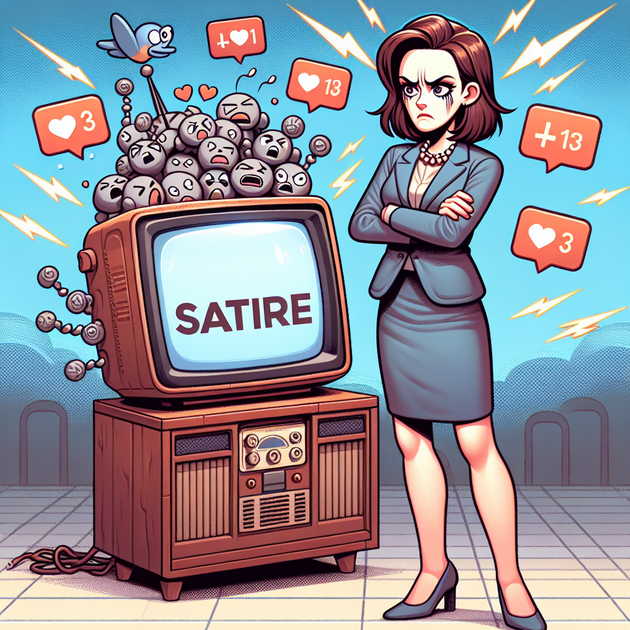Did you know one silly satirical video can cause a full-on political stir? That’s exactly what happened when Senator Amy Klobuchar reportedly wanted to “break the internet” because someone poked fun at her with a goofy online clip. But is that really the full story—or just another example of how quickly things blow up on the internet?
Let’s dig into what actually happened, why people are talking about it, and what it could mean for free speech and satire online.
## What Actually Happened With Amy Klobuchar and the Satirical Video?
So here’s how this all started. Someone created a satirical video about Senator Amy Klobuchar. Like most political satire, it was meant as a joke—not an attack. But according to posts making rounds on Reddit (check out [this discussion](https://www.reddit.com/r/technology/comments/1mwgdsr/amy_klobuchar_wants_to_break_the_internet_because/) for some spicy takes), news spread that Klobuchar wanted to take drastic action in response. Some folks even claimed she wanted to “break the internet.”
Now, let’s be real—the idea that one senator could literally break the entire internet is pretty far-fetched. Still, these kinds of stories catch fire fast online. People love a good controversy, especially when it involves politicians and freedom of speech.
## Why Do Satirical Videos Cause So Much Drama?
Satire has been around forever—think late night TV sketches or those classic political cartoons in newspapers. Online though? Everything moves faster and gets way more attention.
Here’s why satirical videos can spark big reactions:
– **They’re shareable:** A funny or shocking clip spreads quickly across social media.
– **They can blur lines:** Sometimes satire is so close to reality that people get confused or offended.
– **Politicians have thin skin:** Not everyone likes being made fun of—especially in public.
– **Viral potential:** Once something starts trending, everyone chimes in (whether they watched the original or not).
I remember when I first saw one of those deepfake videos floating around on Twitter. It was hilarious but also made me wonder—how many people actually realized it was fake? That gray area is exactly where controversies like this thrive.
## The Internet Reacts: Free Speech or Censorship?
Whenever stories like “Amy Klobuchar wants to break the internet” hit social media, you’ll see two main camps form almost instantly:
– **Free Speech Defenders:** “It’s just satire! Politicians should be able to take a joke.”
– **Concerned Critics:** “But what if these videos mislead people or cross a line?”
It comes down to how we balance freedom of expression with concerns about misinformation or potential harm. But here’s an important detail—there’s no evidence that Senator Klobuchar actually tried to take down the whole web over this one video. Most likely, she (or her team) just didn’t appreciate being mocked in such a public way.
## Why This Matters For Everyone Online
This whole drama isn’t really about Amy Klobuchar alone—it’s about how we handle jokes and criticism on the internet. Here are some takeaways anyone who uses social media should keep in mind:
– **Satire isn’t going away:** As long as there are politicians and celebrities, there will be jokes at their expense.
– **Context matters:** Not every viral headline tells the whole story (in fact, most don’t).
– **Reacting publicly can backfire:** Trying to “fight back” against jokes often makes them spread even more.
– **The internet loves controversy:** Outrage travels faster than facts.
Here’s an anecdote for you: I once posted a meme poking fun at my favorite tech CEO. Within hours, folks were debating whether I was serious or joking—and some even tried reporting my post! It was all in good fun (at least from my side), but it goes to show just how touchy things can get once humor meets politics online.
So next time you see headlines claiming someone wants to “break the internet,” take it with a grain of salt—and maybe watch the original clip before jumping into the debate.
**How do you think we should handle satire—and reactions like this—in our digital world? Let me know your thoughts below!**

Leave a Reply